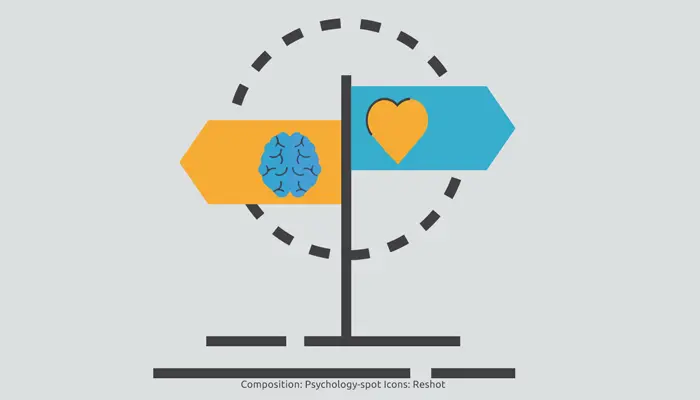
“Insanity is doing the same thing over and over again and expecting different results,” wrote Rita Mae Brown. And yet, many times we stumble over the same stone simply because we don’t realize that we are walking the same path, strange as it may seem. For that reason, instead of asking ourselves, in despair or perplexity, why the same things always happen to us, we should ask ourselves why we always choose the same path.
We don’t learn as much from mistakes as we believe
We can learn from our mistakes. Of course. But everything seems to indicate that we do not learn as much as we suppose or as we should, both from good and bad decisions. Interestingly, the simple fact of remembering past mistakes could condemn us to repeat them.
In a series of experiments conducted at Boston College, psychologists asked some people to recall times when they were able to successfully control their impulse buying temptations, and others to recall times when they failed. Interestingly, those who remembered their failures were more willing to spend to buy the coveted product. Apparently, the feeling of failure disables self-control and encourages self-indulgence.
It has not been the only experiment that has called into question our ability to learn from mistakes. Researchers at McMaster University in Canada created “tip of the tongue” situations as people tried to find the right word. When the person could not find the answer and made mistakes, they asked him to keep trying for 10 or 30 seconds.
A few days later, they repeated the same tests. The psychologists found that the longer the participants had focused on the problem in the previous round, the more likely they were to come up with a problem again, suggesting that their brains learned to be wrong rather than finding the solution.
What happens is that after making a mistake, the next time a similar problem arises, our brains often slow down the decision-making process, a phenomenon known as “post-error slowdown.” However, that doesn’t always make the next decision better.
Most likely, our brain is so preoccupied with discovering the error that it never arrives at the solution, the essential step to learn the lesson. In practice, we get so focused on trying to understand why the error occurred, that we get distracted by the flow of information and don’t look for a better solution.
In other words, we follow a path prone to errors precisely because of the value we place on them. We consider errors as anomalies that we must dissect in our “mental laboratories”, but we can get lost in the process, without ever seeing another way out.
Our mental patterns dictate the way
“Those who learn nothing from the unpleasant facts of life force cosmic consciousness to replay them as many times as necessary to learn what the drama of what happened teaches,” Carl Jung wrote.
Actually, it is not that there is a cosmic consciousness ready to “punish” us, but rather that our attitudes, resistances, mental patterns and ways of seeing the world lead us to make the same decisions, so that we replicate the mistakes.
In large part, the tendency to trip over the same stone twice is due to the way our brains are configured. Neural pathways are created as we do things. When we do something right, a neural connection is formed. Unfortunately, when we do something wrong, it also forms. Basically, this is how we build our habits, both beneficial and harmful ones.
That’s one of the reasons why we keep making the same mistakes over and over again. By default, we resort to existing neural pathways, which means activating certain thought patterns, coping styles, or value systems. So we do not have to face the arduous task of change.
However, repeating the same mistakes and reliving our own “Groundhog Day” becomes a problem when it comes to toxic patterns of behavior and ways of thinking that ruin our lives, because it is one thing to forget the keys when leaving the house and another, quite different, to continually fall into abusive relationships, fuel cycles of debt, or cling to toxic habits.
How to break the loop of bad decisions?
To avoid making the same mistakes, perhaps we should stop paying so much attention to failures and focus more on the solution. Instead of berating ourselves and obsessing over the moment we made the wrong choice, we should strategize for the future.
Analyzing errors is fine. But obsessing over them can be a boomerang and keeps us tied to the past. Instead, we can focus on the future and rethink our path with our view set on the solution.
We must remember that if we suffer from a repetition compulsion, as Freud called the tendency to make the same mistakes over and over again, the problem is not outside but inside. The explanation is found in our mental patterns, expectations and ways of seeing the world. Therefore, it is useless for us to wonder why the same things always happen to us, but rather why we always choose the same path.
Sources:
Nikolova, H. et. Al. (2016) Haunts or helps from the past: Understanding the effect of recall on current self-control. Journal of Consumer Psychology; 26(2): 245-256.
Warriner, A. B. & Humphreys, K. R. (2008) Learning to fail: Reoccurring tip-of-the-tongue states. The Quarterly Journal of Experimental Psychology; 61(4): 535-542.




Leave a Reply